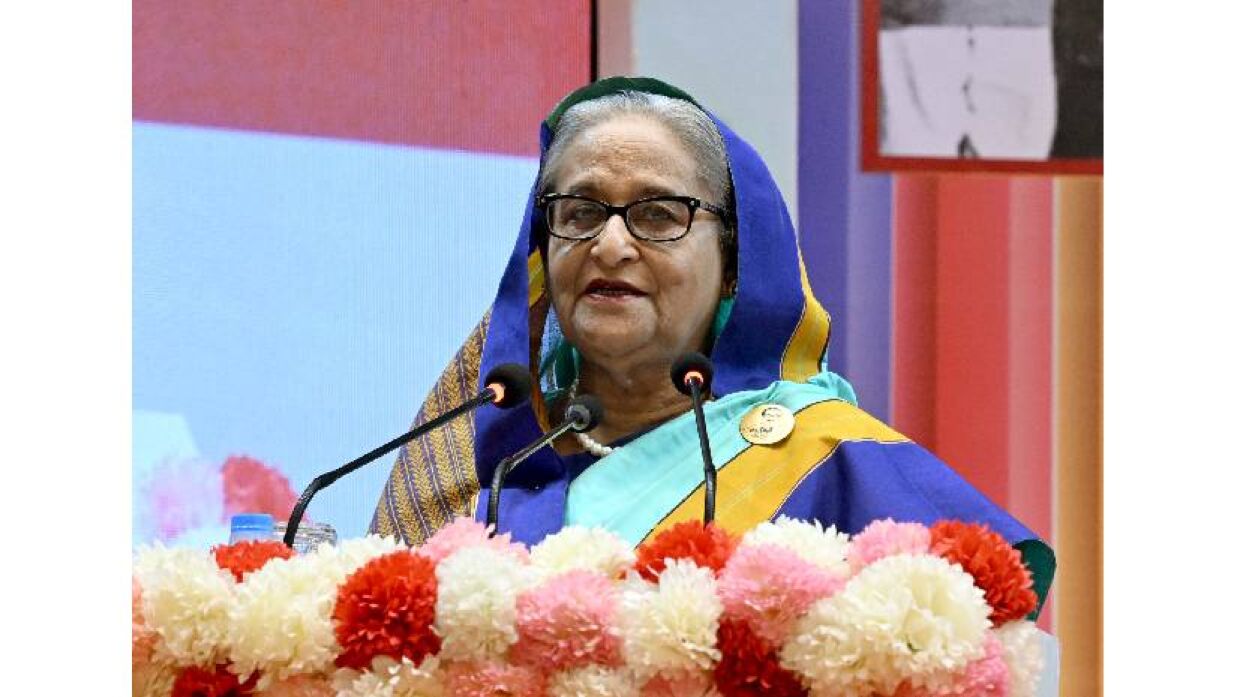Prime Minister Sheikh Hasina announced that the number of female teachers in the country’s primary schools has tripled over the past 15 years. She made this statement today, Thursday (June 27), at the presentation of the Primary Education Medal 2023 and the inauguration of National Primary Education Week 2024 held at the Osmani Memorial Auditorium in Dhaka. The event was organized by the Ministry of Primary and Mass Education and managed by the Directorate of Primary Education.
The Prime Minister noted that there are currently approximately 118,891 primary schools nationwide, employing 657,203 teachers, of which 403,191 are female.
Highlighting the initiatives taken by the Awami League to advance the education sector, the Prime Minister stated, “Our literacy rate was only 45%. We launched various programs to eliminate illiteracy in every district, engaging different NGOs and institutions to provide adult education. Consequently, we increased our literacy rate to around 65.5%.”
She added, “We received an international award for this effort, and we used the prize money to establish a trust fund to support people. However, when we came to power again in 2009, we found that the literacy rate had dropped back to 44-45% due to the absence of the Awami League from power for eight years. Since 2009, our measures have raised the literacy rate to nearly 78%, up from the previously recorded 76.8%.”
Discussing the increase in female students’ participation in schools, she expressed her happiness that the enrollment rate of girls has risen to 98.25%, with dropout rates falling to 13.15%. The Prime Minister emphasized the importance of inclusive education for children with special needs, fostering an environment of acceptance and empathy from a young age.
The Prime Minister also discussed steps taken for women’s empowerment, noting that in 1996, her government implemented a policy requiring 60% of primary school teacher recruits to be women. This policy has expanded female education and employment opportunities.
She emphasized the importance of a balanced, welfare-oriented, and quality education system. The government aims to provide computer labs in every school, starting from the primary level. Additionally, the pre-primary education program, initially for one year, is being extended to two years to encourage play and social interaction among children.
Since 2010, the Awami League government has distributed 664 crore 74 lakh 29 thousand 883 copies of textbooks for free. The Prime Minister also mentioned community-based school feeding programs to reduce dropout rates due to hunger.
She underscored the importance of teacher training, particularly in modern technology and content creation. She highlighted the government’s efforts to improve teacher salaries, allowances, and benefits.
The Prime Minister also stressed the importance of children’s involvement in cultural activities, sports, and physical education. She reiterated the government’s commitment to developing a technologically skilled population to build a “Smart Bangladesh” with smart citizens, smart governance, smart economy, and smart society. She envisioned that today’s children, equipped with technological knowledge and inspired by patriotism, would become future leaders, scientists, and innovators, taking the country to new heights, even to the moon.
- Pixel Tap Daily Combo: Pixelverse In-game Rewards - September 6, 2024
- Gemz Daily Combo Rewards: Earn Extra Coins Daily - September 5, 2024
- Red Magic 9S Pro: A Powerful Gaming Phone with 6500mAh Battery and 24GB RAM - July 4, 2024
